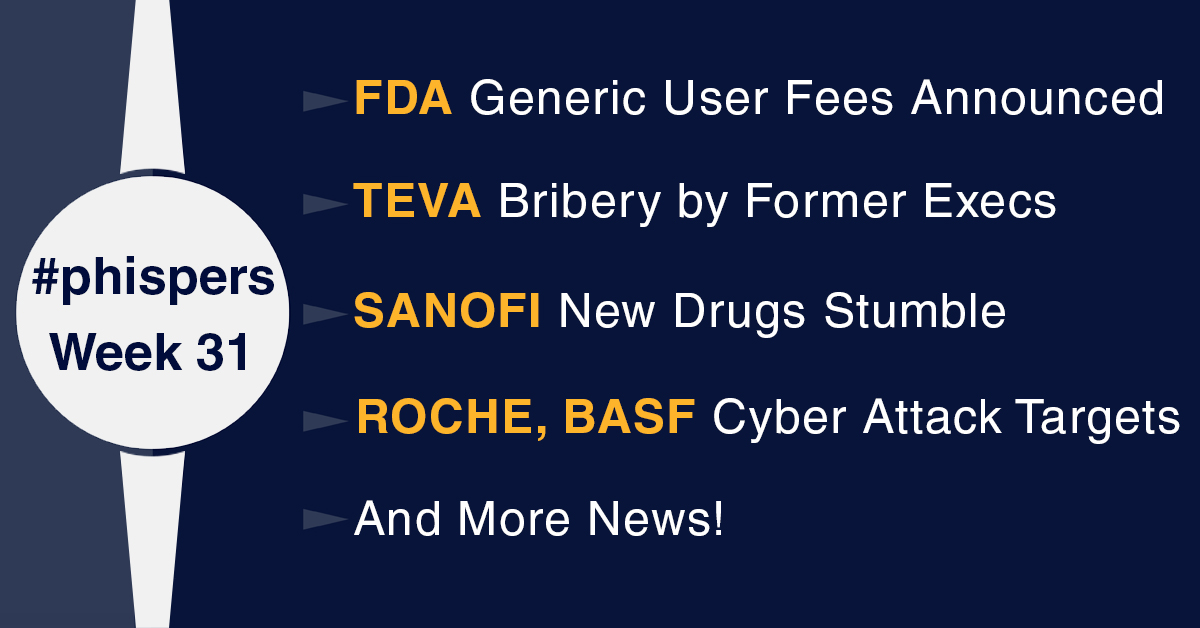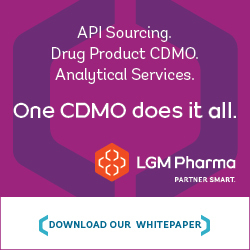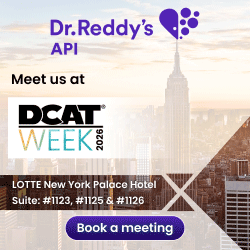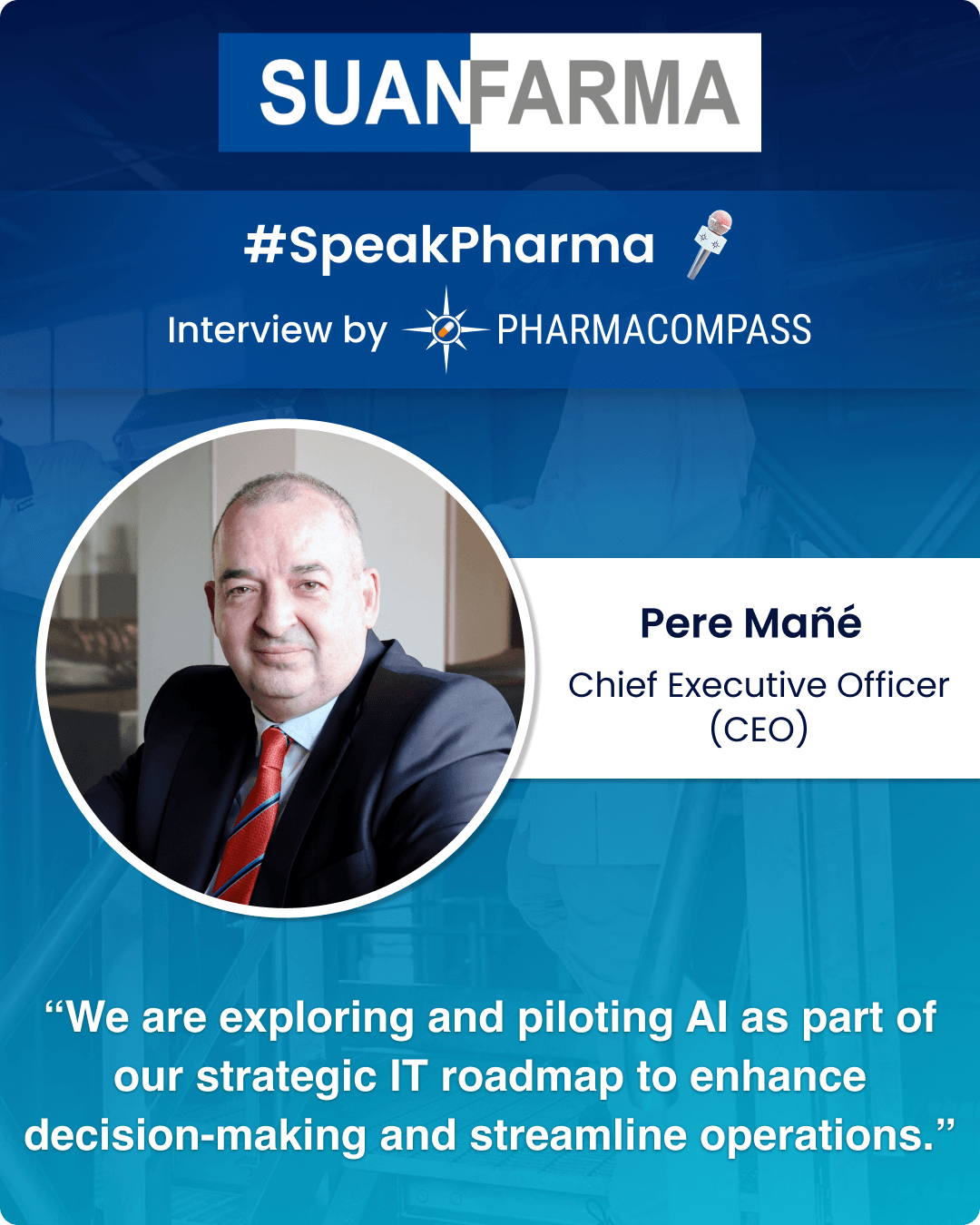
By PharmaCompass
2019-08-01
Impressions: 1648
This week, the USFDA released its GDUFA II user fee for fiscal 2020.
Unlike last year, when the fees were hiked significantly, this year the fees were either marginally lowered or unchanged.
French drugmaker Sanofi posted both good and bad news.
While it posted strong Q2 results and raised its outlook, it saw sales of its hemophilia drug Eloctate shrivel in front of Roche’s Hemlibra.
Therefore, it revised its sales estimate for Eloctate by US$ 2 billion.
Two drugmakers — Roche and Novartis — posted unflattering results in trials for new use of their key drugs.
Israeli generic drug giant Teva plans to recover US$ 50 million out of US$ 519 million it paid in a bribery charge settlement case in the US from former executives.
Teva, along with three other drug companies, will also pay California US$ 70 million to settle allegations that they delayed drugs to keep prices high.
And in Germany, companies like BASF and Roche said they have been victims of cyber attack, likely hosted by a state-backed Chinese group.
FDA announces generic user
fee for FY2020; lessens fee load for copycat drugmakers
The US Food and Drug Administration (FDA) released its GDUFA II user fees for fiscal 2020. Unlike the previous year, when most fees saw a significant increase, the fees for the upcoming year are either marginally lowered or remain unchanged.
The new GDUFA II fees will come into effect on October 1.
|
Fee category |
GDUFA II fee for FY 2020* |
GDUFA II fee for FY 2019 |
GDUFA II fee for FY 2018 |
|
Applications |
|||
|
ANDA |
176,237 |
178,799 |
171,823 |
|
DMF |
57,795 |
55,013 |
47,829 |
|
Facilities |
|||
|
Domestic API facility |
44,400 |
44,226 |
45,367 |
|
Foreign API facility |
59,400 |
59,226 |
60,367 |
|
Domestic FDF facility |
195,662 |
211,305 |
211,087 |
|
Foreign FDF facility |
210,662 |
226,305 |
226,087 |
|
Domestic CMO facility |
65,221 |
70,435 |
70,362 |
|
Foreign CMO facility |
80,221 |
85,435 |
85,362 |
|
GDUFA program |
|||
|
(20+ANDAs) Large-size operation generic drug applicant program |
1,661,684 |
1,862,167 |
1,590,792 |
|
(6-19 ANDAs) Medium-size operation drug applicant program |
664,674 |
744,867 |
636,317 |
|
(1-5 ANDAs) Small business generic drug applicant program |
166,168 |
186,217 |
159,079 |
*The fee is applicable from October 1, 2019, until September 30, 2020.
GDUFA II stipulates that user fees should total US$ 493,600,000 annually, adjusted each year for inflation. The FDA utilized data from ANDAs submitted from October 1, 2013, to April 30, 2018, to estimate the number of new original ANDAs that will incur filing fees in FY 2019.
For FY 2020, the base revenue amount is US$ 501,721,201.
The FDA estimates that approximately 953 new original ANDAs and 444 DMFs will be submitted and incur filing fees.
PharmaCompass’ analysis has shown a gradual drop in the number of facilities paying GDUFA fees each year and it remains to be seen if the reduction of fees leads to an increase in registrations.
Teva to
recover bribery charge settlement amount from former executives
Back in 2016, the US Department of Justice had charged Israeli generic drug giant Teva Pharmaceutical Industries of conspiracy to violate anti-bribery provisions of the Foreign Corrupt Practices Act, and with intentional failure to maintain adequate internal controls. Teva had to pay around US$ 519 million under a deferred-prosecution agreement. Following the US settlement, Teva ended up paying Israel US$ 22 million in 2018 to avoid similar charges in the country.
Now, it seems that US$ 50 million out of the US$ 519 million will be back in Teva’s coffers, thanks to its former senior executives and board members, the identities of which have not been undisclosed. They’ll also pay a US$ 22 million share of the outlay to Israel’s State’s Attorney Office, according to Calcalist. However, the US$ 50 million payout must be approved by a Tel Aviv district court.
According to reports, the sum — to be paid by an insurance company — is a compensation for the heavy fines Teva was forced to pay US and Israeli authorities after bribes paid in connection to the unnamed individuals in Russia, Ukraine, and Mexico between 2007 and 2012 to boost Teva’s local Copaxone sales landed the company in legal trouble.
Teva made around US$ 215 million in profit as a result of those bribes, recorded as legitimate distributor payments. The damage that Teva eventually coughed up due to actions of the former employees and directors currently stands at US$ 276 million.
Teva had faced several lawsuits from shareholders following this ordeal, which led the company to set up an independent claims committee in March 2017 that would debate the bribes paid by the Teva executives. The committee finished its work in April, compiling a 165-page report. Its main conclusions were that, based on the agreement reached with US authorities, a lawsuit filed against the former executives and board members would have low odds of succeeding due to the difficulty of proving individual responsibility, and it is better to try and reach a settlement with their insurer, represented by law firm Clyde & Co.
Teva, others to pay California US$ 70 million in pay-for-delay settlement: Four pharmaceutical companies will together pay California nearly US$ 70 million to settle allegations that they delayed drugs to keep prices high, California Attorney General Xavier Becerra said.
The bulk of the money will come from Teva and its affiliates for paying to delay a generic narcolepsy drug — Provigil — from entering the market for nearly six years. Teva is paying US$ 69 million, which according to Becerra is the largest pay-for-delay settlement received by any state.
“No one in America should be forced to skip or ration doses of medicine that they need ... and certainly not because a drug company is colluding to keep the price of your drug artificially high even when cheaper options could be available. But that’s what’s happening,” Becerra said.
The second US$ 760,000 settlement is with Teva, Endo Pharmaceuticals and Teikoku Pharma USA over keeping a genetic alternative to the pain patch Lidoderm from entering the market for nearly two years. Teva said it is paying US$ 200,000 to cover the state’s legal costs after settling similar federal claims earlier this year. Both settlements bar the companies from pay-for-delay agreements for several years.
Sanofi posts strong
Q2 results; revises sales estimates for hemophilia drug by US$ 2 billion
French drug major Sanofi posted its second quarter results this week, wherein its net income rose by 4.9 percent (to €1.64 billion or US$ 1.83 billion), while sales were up 3.9 percent to US$ 9.61 billion (€8.63 billion). On the back of the strong quarterly results, the company raised its 2019 outlook.
Sanofi is betting on strong uptake of its drug Dupixent, which is used to treat a number of diseases. Dupixent was initially prescribed for atopic dermatitis and later approved for asthma and chronic rhinosinusitis. Sales of Dupixent, developed with US firm Regeneron, rose 168 percent at constant exchange rates in the second quarter to US$ 551.8 million (€496 million).
However, not everything at the French drug giant was hunky-dory.
The company saw its market for Eloctate (one of Bioverativ’s key products) shrink in the face of Roche’s new drug, Hemlibra. As a result, it had to revise its sales projections for Eloctate substantially. Sanofi recorded a US$ 2 billion (€1.84 billion) write-down “mainly related to Eloctate.”
“It is a non-cash event of course but it is clear that the competition from Hemlibra was a surprise to everyone and it is indeed putting pressure,” Jean-Baptiste de Chatillon, Sanofi’s chief financial officer said.
Sales of Eloctate dropped 11 percent and are expected to fall further. Eloctate and Alprolix were the two big legacy drugs Sanofi had acquired when it bought Bioverativ last year for US$ 11.6 billion.
Collaboration with Lexicon: Sanofi has terminated a nearly four-year-old, potentially US$ 1.7 billion-plus collaboration with Lexicon Pharmaceuticals to develop ZynquistaTM (sotagliflozin) after the type 1 and type 2 diabetes candidate showed mixed results in three Phase III trials, including disappointing outcomes among patients with chronic kidney disease (CKD).
However, Lexicon has struck back at Sanofi, declaring its notice of termination as “invalid”. According to Lexicon, Sanofi was “in breach of contract” by ending the partnership.
Key
BMS and Novartis products post unflattering results in trials for new
use
Last week, US drug major Bristol-Myers Squibb (BMS) released mixed results from trials that tested the survival benefit of its immunotherapy Opdivo in combination with either chemotherapy or its other immuno-oncology drug — Yervoy (ipilimumab) — as an initial treatment for advanced lung cancer.
Yervoy and Opdivo (nivolumab) — belong to a class called checkpoint inhibitors. BMS said Opdivo combined with chemotherapy failed to extend overall survival more than chemotherapy alone in patients with advanced non-squamous non-small cell lung cancer (NSCLC).
Meanwhile, BMS, which is all set to buy biotechnology company Celgene Corp for US$ 74 billion, posted better-than-expected second-quarter earnings, owing to the strong sales of its blood thinner Eliquis and rheumatoid arthritis treatment Orencia. The company’s revenue in the quarter was US$ 6.27 billion, compared with Wall Street expectations of US$ 6.11 billion.
Sales of Eliquis rose 24 percent to US$ 2.04 billion and Orencia sales rose 9 percent to US$ 778 million. Both drugs performed better than the expectation of analysts.
The other drug that didn’t clear the trial for a new use is Novartis’s heart failure drug Entresto .
The drug, already approved for reduced fraction heart failure (or systolic heart failure), “narrowly missed” its objectives when tested on patients with preserved ejection fraction (or diastolic heart failure) type of the heart disease, which affects 13 million globally, roughly half of all heart failure patients, the Swiss drugmaker said in a statement.
Twice-a-day Entresto has the potential to bring in more than US$ 3 billion in annual sales from the current indication in patients whose heart muscles do not contract effectively, Novartis has said.
“The trial narrowly missed statistical significance for its composite primary endpoint of reducing cardiovascular death and total heart failure hospitalizations,” Novartis said.
Merck’s Q2 results: Meanwhile, Merck’s second-quarter earnings and revenue beat Wall Street’s expectations. It sees 2019 revenue between US$ 45.2 billion and US$ 46.2 billion. Wall Street was expecting revenue of US$ 44.74 billion this year.
Merck said sales of Keytruda immunotherapy surged 58 percent in the quarter to US$ 2.6 billion. Keytruda, which boosts the immune system to attack cancer, has driven growth for Merck and put pressure on BMS’s rival drug Opdivo.
Sales of Merck’s Gardasil vaccine to prevent certain types of cancer were up 45.7 percent to US$ 886 million. Sales of vaccines to children, which includes the company’s MMR vaccine for measles, jumped 58 percent to US$ 675 million.
Roche,
BASF target of cyber attacks, allegedly hosted by state-backed Chinese group
In Germany, a host of companies, such as BASF, Siemens, Roche and Henkel among others, said they had been victims of cyber attacks. They confirmed a German media report that said the likely culprit was a state-backed Chinese group.
According to public broadcaster ARD, the hackers used a type of malware called Winnti, which allowed attackers to remotely access a victim’s computer network. ARD said an analysis of the malware code showed which companies had been targeted. The group behind these cyber attacks was likely working for the Chinese government, a Reuters report said.
The other companies that were reportedly targeted by the hackers were Marriott (hotel group), Lion Air, Sumitomo, and chemicals group Shin-Etsu.
Industrial conglomerate Siemens, shampoo maker Henkel and Swiss pharma group Roche confirmed that they were affected by “Winnti”, while BASF and Covestro also confirmed that they have been attacked.
All said that no sensitive information was lost, while none of the companies commented on whether the attacks had been launched by Chinese hackers or not.
The PharmaCompass Newsletter – Sign Up, Stay Ahead
Feedback, help us to improve. Click here
Image Credit : #Phisper Infographic by SCORR MARKETING & PharmaCompass is licensed under CC BY 2.0
“ The article is based on the information available in public and which the author believes to be true. The author is not disseminating any information, which the author believes or knows, is confidential or in conflict with the privacy of any person. The views expressed or information supplied through this article is mere opinion and observation of the author. The author does not intend to defame, insult or, cause loss or damage to anyone, in any manner, through this article.”







